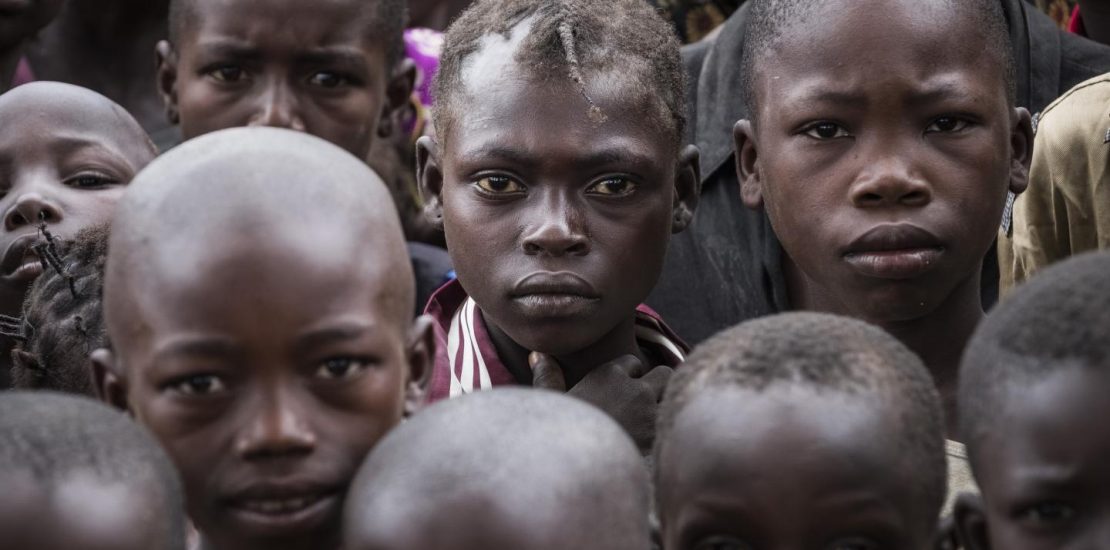- November 17, 2021
- Posted by: humanitarianweb
- Category: Humanitarian News

The protection and well-being of children in the Central African Republic (CAR) has gravely deteriorated in recent months and particularly since the end of 2020 with a spike for most of the six grave violations, highlights the latest report on the country of the Secretary-General on children and armed conflict. The vulnerability of Central African children to grave violations was largely exacerbated by a surge in hostilities across the country, including attacks by armed groups and counter-offensive military operations by government and pro-governmental forces during the electoral processes in 2020 which are continuing to this day.
The report highlights that 1,280 children suffered one or more grave violations between 1 July 2019 and 30 June 2021, with girls accounting for more than 40% of all victims. Most grave violations were committed by armed groups; nevertheless 5% were attributed to the Forces armées centrafricaines (FACA) and bilaterally deployed and other security personnel.
“The security situation in the Central African Republic has rapidly worsened in recent months and children are paying a high price for these renewed hostilities,” said the Special Representative of the Secretary-General for Children and Armed Conflict, Virginia Gamba. “I call on the signatories of the Political Agreement to uphold their commitments including those pertaining to children and urgently put in place concrete measures to protect children from harm and prevent further violations.”
The recruitment and use of children was the most prominent violation with 845 boys and girls affected. Following were incidents of rape and other forms of sexual violence, with verified numbers worryingly high despite the violation being vastly underreported usually for fear of reprisal, stigma, lack of accountability and support for victims and survivors. At least 249 girls suffered from rape or other forms of sexual violence, but the actual scope of the violation is likely much worse.
The denial of humanitarian access was the third most verified violation with 226 incidents. “The situation is becoming increasingly difficult for humanitarian actors, who are struggling and facing growing dangers to reach the most vulnerable ones, including children, in dire need of life-saving assistance,” said Virginia Gamba. As of 30 June 2021, 2.8 million people were in need of humanitarian assistance and over 717,000 people had been internally displaced in the country, based on OCHA’s figures.
The violence in the country took a heavy toll on children; 155 boys and girls were verified killed or maimed, most by crossfire between parties to the conflict. One hundred and sixteen (116) children were abducted, more than half of them girls. The prevalence of incidents of attacks on schools and hospitals is also concerning as the education and health systems remained deeply affected by the conflict and have been further impacted by the COVID-19 pandemic. Of increasing concern is the elevated number of instances of military use of schools. “These incidents deprived children of attending classes or forced them to enroll in different schools. I urge all parties to vacate all schools and hospitals that continue to be used, to respect the civilian character of these facilities and to put in place swift and effective measures to prevent this practice in line with the commitment made to the Safe School Declaration that the country has endorsed,” the Special Representative added.
Progress for Children Amidst Challenges
The strengthening of the national legal framework through the promulgation of the Child Protection Code in June 2020 is benefitting children, and the Special Representative welcomes the provisions criminalizing all six grave violations against children. She urges the government to swiftly roll out the new law.
Advocacy with armed groups by the United Nations on the ground led to the separation from armed groups of 653 children, all benefitting from reintegration support. Such a positive outcome has continued beyond the end of the reporting period and more than 130 children have been separated since June 2021. The Special Representative emphasizes the importance of comprehensive reintegration support for all released children including medical screening, family tracing and reunification, psychosocial assistance, and educational or vocational training. As such, she reminds the international community of the importance of continuing to support reintegration efforts both politically and financially, including the Global Coalition for Reintegration of Child Soldiers.
Despite some progress in accountability for perpetrators of crimes against children, impunity remains high, and the Special Representative urges the authorities to bring perpetrators to justice and to make full use of the recently promulgated Child Protection Code.
As the world continues to respond to the COVID-19 pandemic, its long-term impact on children still needs to be addressed. In CAR, protection mechanisms were weakened, and schools were closed to prevent the spread of the virus, raising concerns about a potential increase in children’s vulnerability to more violations, notably recruitment and use, and sexual violence.
“As countries around the world continue to focus on their response to the pandemic and rollout vaccination programs, we need to stand ready to respond to the urgent needs of children, particularly in the regions where the situation is the most critical,” said Virginia Gamba.
She further calls on the Government and parties to the conflict to develop a national strategy to prevent grave violations against children and added that the United Nations stands ready to support all efforts to better protect Central African children.

Профессиональный сервисный центр по ремонту Apple iPhone в Москве.
Мы предлагаем: сервисный центр iphone москва
Наши мастера оперативно устранят неисправности вашего устройства в сервисе или с выездом на дом!